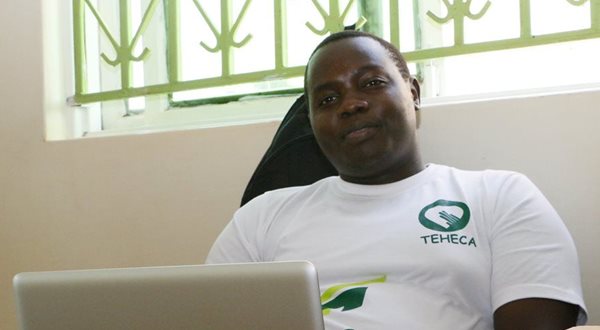
Top stories




Energy & Mining#MiningIndaba: How GenAI is reinventing mine maintenance in South Africa
Maroefah Smith 53 minutes


More news














Teheca is a Ugandan-based health tech company that connects new and expectant mothers to nurses for in-home check-ups and postnatal support.
Daniel Ruyonga, CEO at Teheca, shares more about the startup that provides healthcare services to expectant mothers.
We believe that availing timely and personalized health care services to mothers during pregnancy and the postnatal period is key to ensuring timely identification, referral, and management of life-threatening complications that arise in mothers and infants, hence reducing the high infant and maternal mortalities across Sub-Saharan Africa.
Therefore, Teheca is a tech health company that helps connect new and expectant mothers to nurses for in-home check-ups and postnatal support.
Teheca started in 2016 to provide personalized and timely general health care services, and later in 2017 decided to focus on maternal health due to the high infant and maternal mortality in our communities.
We are focused on reducing infant and maternal mortality through connecting new and expectant mothers to qualified nurses, actionable and context-relevant information as well authentic, affordable maternal health products.
We have 2 core services:
Beyond the main care services, we also provide access to maternal health products like mama kits (a Teheca prepared mama bag) and soon we will be releasing a self-assessment platform where we can help new and expectant mothers easily identify common pre and postnatal complications.
Technology adoption rate is still below the expected to ensure an efficient end to end service delivery, so we have to sometimes get manually involved in ensuring the successful completion of the care service delivery which makes it challenging to grow faster and cover large areas.
Building a team that will execute at the expected capacity while operating on a shoestring budget is one of the obstacles that we are still trying to overcome among many others.
When our government imposed a lockdown, we had to temporarily suspend the care services as there was no transport and means of having our care team deliver care services, this greatly affected our business and all efforts we had invested in customer acquisition before the lockdown
Also, I have to admit as a team we were not well-prepared to work from home and this put a lot of constraint on administration, and sadly we had to let some of our team members go.
Recovery from the suspension of the care services that negatively impacted our revenue is a big challenge, and service delivery costs have increased from transport of the care team to client destination to medical care items and tools needed to deliver the care services.
Currently, we would appreciate financial assistance to offset some of the overhead costs as we try to bring back business to normal and also support customer acquisition efforts and paying of team salaries.
The team is adjusting to working from home by adopting workplace tools that help in communication and reporting. We are also reimagining the delivery of our care services to our users. Promoting online sales for the products by signing up on different online markets like Jumia and SafeBoda.
We are building an online assessment platform that will enable our users to conduct check-ups and easily identify signs and symptoms of common pre and post birth complications, this is aimed to support the offline care service delivery.
We are also launching mini parent-centered e-commerce within the Teheca app to help parent shop for must-have maternal health products and baby care products. We plan to release it at the end of August.
We had a rise in online orders for the Teheca mama kit during the lockdown and everyone who bought the mama kit had a list of more items they needed, this prompted us to plan to provide more items other than the mama kit. We plan to work with the existing baby and maternity shops, have them create shops on the Teheca app, and connect them to the customers just like we do for the nurses.
We predict growth in online orders and online purchases in Uganda on the side of the business, especially for essential items and less on luxury items due to the impact of losing income sources for many people.
You need to build more than one way to deliver the intended value to the customers, you can never know when the main channel goes away as well as diversification of revenue stream to ensure the sustainability of the business when the mainstream is affected.
I would love to see an ecosystem that is receiving more venture funding directed to startups that are solving everyday African challenges as well as more African founders and companies collaborating to expand solutions beyond their country borders.
Before we can build products people want, African founders need to build products people need, solving basic human needs will be key to unlock the next market opportunities.
I see more companies coming up to tackle core African problems first, like health, poverty, hunger, connectivity, and more.
My personal opinion is before we can unlock the next level of entrepreneurship in Africa, we need to solve the basic human needs.